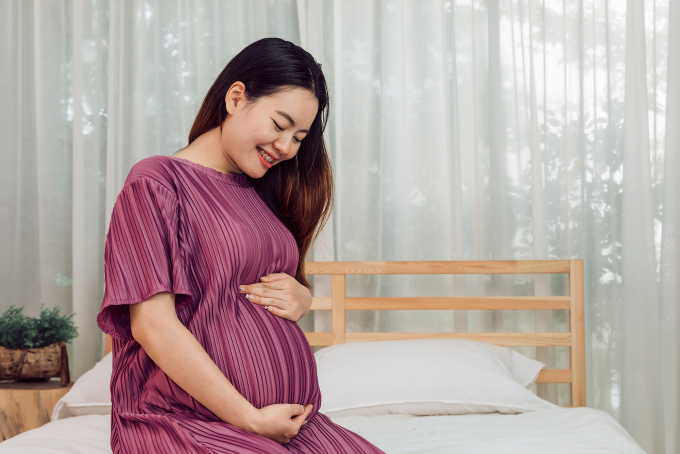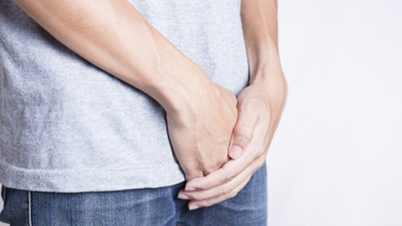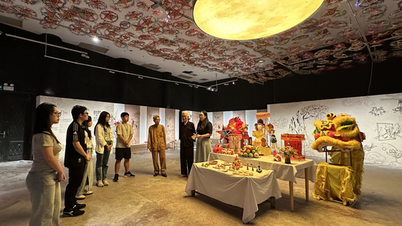Women are born with about 6 million eggs in their ovaries, losing thousands each month and by menopause having less than 100 eggs left.
From birth to puberty
Every girl is born with a certain number of eggs and no more will be produced during her lifetime. At this time, the immature eggs are called oocytes. Egg cells are located in follicles (fluid-filled sacs) in the ovaries. As they grow, they become oocytes and develop into an ovum or mature egg.
During early fetal development, a baby girl's ovaries contain about 6 million eggs. The number gradually decreases until by the time the child is born, they have 1-2 million remaining. egg
Menstruation doesn't begin in girls until puberty, about two years after breast tissue appears. At that time, the hypothalamus in the brain begins to produce gonadotropin-releasing hormone (GnRH). GnRH stimulates the pituitary gland to produce follicle-stimulating hormone (FSH). FSH starts the process of egg development and causes estrogen levels to rise. The average age of menstruation is around 12 years, but some girls may start as early as 8 years.
At puberty, each girl has only about 300,000-400,000 eggs . This decrease is due to the death of more than 10,000 eggs each month before puberty.
As the follicles mature, they become sensitive to hormones during the menstrual cycle. Each month, the body selects a group of mature eggs to release, but only one egg is eventually released, representing a woman’s only chance of conceiving each month. In some exceptional cases, more than one egg is released, resulting in twins.
All the remaining eggs in that cycle's pool wither and die. This happens every month and continues until a woman reaches menopause, when she no longer has any eggs.
The number of eggs that die each month decreases after puberty. According to Sherman Silber, an infertility specialist in the US, a woman loses about 1,000 immature eggs each month after the start of her menstrual cycle. Research data is still unclear on whether health conditions and foods affect the quality or quantity of eggs. According to a 2018 study by the American Society for Reproductive Medicine, smoking and some chemotherapy and radiation treatments can speed up ovulation.

Women's fertility is best between the ages of 20 and 30, when both the quantity and quality of eggs are high. Photo: Freepik
30 years of age or older
According to the American College of Obstetricians and Gynecologists (ACOG), when women reach their 30s, their fertility begins to decline rapidly. By age 40, their egg supply is less than 10% of what it was before birth. Research shows that premenopausal women over 40 have less than a 5% chance of getting pregnant in any given menstrual cycle.
When the egg supply runs out, the ovaries stop producing enough estrogen and a woman goes through menopause. The exact time of menopause depends on how many eggs a person is born with and how often they ovulate. The average age of menopause, when menstrual periods stop, is 51. For some women, menopause can come earlier or later.
According to data from the American College of Obstetricians and Gynecologists (ACOG), at age 37, women have only 25,000 eggs left in their ovaries, and they will reach menopause about 15 years later, when they will have fewer than 100 eggs.
The most important factor in determining egg quality is age. As women age, both the quantity and quality of their eggs decline. Just before ovulation each month, eggs begin to divide. Older eggs are more likely to make mistakes during this division process, making them more likely to contain abnormal chromosomes. When the egg and sperm combine to form an embryo, there is a higher risk of chromosomal or genetic abnormalities. This is why older women are at higher risk of having a baby with birth defects.
If born with a large number of eggs, women are still able to have children naturally in their mid-40s or even late 40s. Those in their 30s who ovulate more rapidly due to certain risk factors may experience early menopause or premature ovarian failure.
If you are concerned about your ovarian reserve or egg quality, you should see a doctor to have your risk factors assessed and treatment options advised. If you are planning to have children later in life, you may want to consider egg freezing. The earlier you freeze your eggs, preferably before age 35, the higher the quality of your eggs, the more you can collect, and the higher your chances of having children.
Mr. Ngoc (According to Healthline )
Source link






![[Photo] Hanoi morning of October 1: Prolonged flooding, people wade to work](https://vphoto.vietnam.vn/thumb/1200x675/vietnam/resource/IMAGE/2025/10/1/189be28938e3493fa26b2938efa2059e)





























![[Photo] President Luong Cuong receives President of the Cuban National Assembly Esteban Lazo Hernandez](https://vphoto.vietnam.vn/thumb/1200x675/vietnam/resource/IMAGE/2025/9/30/4d38932911c24f6ea1936252bd5427fa)
![[Photo] Panorama of the cable-stayed bridge, the final bottleneck of the Ben Luc-Long Thanh expressway](https://vphoto.vietnam.vn/thumb/1200x675/vietnam/resource/IMAGE/2025/9/30/391fdf21025541d6b2f092e49a17243f)
![[Photo] The 1st Congress of Phu Tho Provincial Party Committee, term 2025-2030](https://vphoto.vietnam.vn/thumb/1200x675/vietnam/resource/IMAGE/2025/9/30/1507da06216649bba8a1ce6251816820)


































































Comment (0)